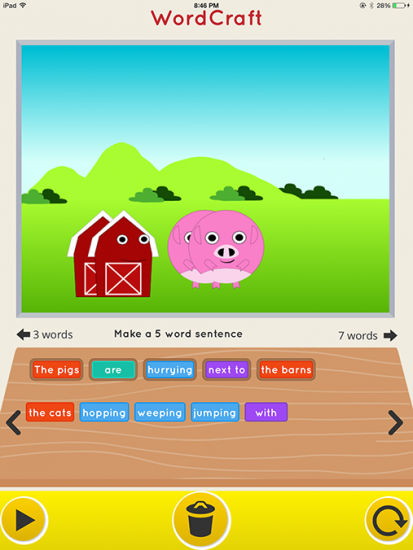Marti Hearst, Professor of Information and Electrical Engineering and Computer Science, recently presented a keynote titled, “Can Natural Language Processing Become Natural Language Coaching?” at the annual meeting of the Association of Computational Linguistics. Hosted in Beijing, this year’s conference attracted 950 attendees. In her talk, Hearst speculated on how natural language processing (NLP) might work collaboratively with students as they write essays. Hearst contrasted current applications of NLP, such as graders and scorers which analyze and assess essays after composition, with “coaches” and “tutors” that might help students in real-time as they compose essays. As the student writes, the coach might provide assistance at the phrase level, clause level, sentence level, discourse level, paragraph level, and essay level.
For an example of how coaching manifests at the early reader level, Hearst discussed Wordcraft, an iPad game developed by a team of Hearst’s graduate students at the School of Information for children ages 4 to 8. Through play, the game aims to strengthen children’s “metalinguistic awareness...through an understanding of parts of speech and how they link together to form a sentence.” Wordcraft might present children with a farm scene with four characters, a fully formed sentence, a word tray with candidate additional words colored by part of speech, and toolbar. When the child completes a sentence correctly, the corresponding action is animated. Other applications of NLP that Hearst discussed included assisting with syntax mastery, providing feedback on short answer assignments, organizing peer discussion triads for MOOCs, and facilitating peer feedback and grading.
In closing her talk, Hearst invited colleagues to begin “inverting the standard mode of our field from that of processing, correcting, identifying, and generating aspects of language to one of recognizing what a person is doing with language: NLP algorithms as coaches rather than critics. “
Hearst will be teaching Information 256: Applied Natural Language Processing this fall. Interested in learning more about NLP and other forms of computational text analysis? Consult our Text Analysis resource guide.
